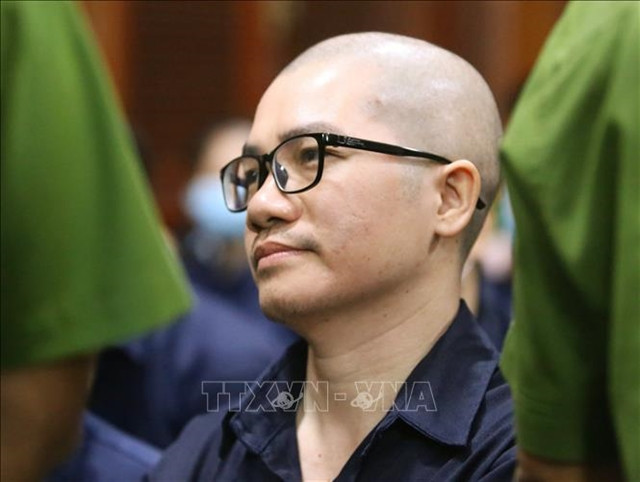 |
|
Nguyen Thai Luyen, chairman of the Board of Directors of Alibaba Company, on Thursday received a life imprisonment sentence for property fraud. — VNA/VNS Photo |
The court also sentenced Luyện’s younger brother Nguyễn Thái Lĩnh, to 17 years in prison, Nguyễn Huỳnh Tú Trinh, legal officer of Alibaba Company, to 12 years in prison, and Huỳnh Thị Ngọc Nữ, former deputy general director of training of Alibaba Company, to 17 years in prison for property fraud.
Nguyễn Thái Lực, another of Luyện’s younger brothers, received a total of 27 years in prison for property fraud and money laundering.
Luyện’s wife Võ Thị Thanh Mai received a total of 30 years in prison for property fraud and money laundering.
Instead of being sent to prison, Huỳnh Thị Kim Thắng, the company’s accountant, received a suspended sentence of three years for money laundering since she is being treated for cancer.
Other defendants received between 10 and 19 years in prison for property fraud.
In addition, the court ordered Luyện and his wife Mai pay 4,550 victims VNĐ2.4 trillion in compensation. It also told Mai to pay back VNĐ13 billion she got from money laundering.
According to the indictment, in May 2016, Nguyễn Thái Luyện established HCM City-based Alibaba Real Estate Joint Stock Company with 22 affiliate companies to invest in 58 projects in Đồng Nai, Bà Rịa-Vũng Tàu and Bình Thuận provinces.
Luyện assigned his relatives and 2,600 trusted employees to act as legal entities of these companies to illegally appropriate property.
Taking advantage of people’s lack of understanding of the law in the transfer of land use rights, Luyện and his accomplices counterfeited residential projects, illegally divided and separated land plots and sold them to thousands of people to illegally appropriate VNĐ2.4 trillion.
To create trust and attract customers, Luyện promised to buy back the land at prices 30 per cent higher after 12 months or 38 per cent higher after 15 months from the date of payment.
He also told purchasers they could rent the land back for 2 per cent per month from the date of signing if the customers paid 95 per cent of the contract value.
With this method, most customers who received land transfers in the form of residential plots offered by the company did not receive the certificates of land use rights. Instead, Alibaba Company paid interests or repurchased the land according to options contracts or attached contract addendums.
According to the court, Alibaba Company was not permitted to divide and separate land plots, and the land was not residential as advertised by the company. The offering of options or attached contract addendums was a means of luring people to the projects. — VNS